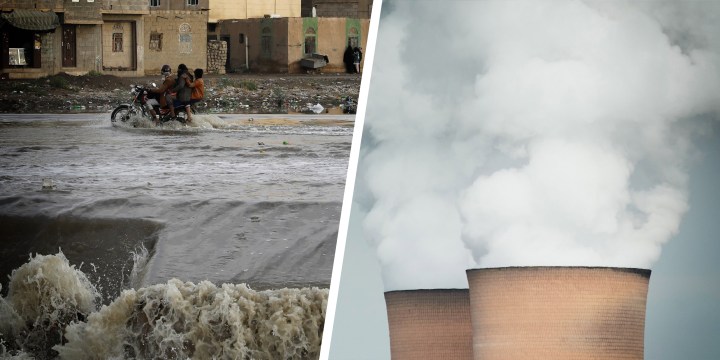AR6 SYNTHESIS REPORT
The need for action on the climate crisis is more urgent than previously assessed – IPCC

The delay in shifting away from carbon-intensive ways of life is exacerbating the climate crisis and will have deep consequences for the planet and people if nothing is done urgently. A lack of action could also mean reaching tipping points sooner than anticipated.
Climate action should be taken urgently to ensure human and planet adaptation in light of a changing climate, the Intergovernmental Panel on Climate Change (IPCC) said in its closing report that marked the end of the sixth assessment cycle.
Titled IPCC AR6 Synthesis Report, the report found that the multiple and effective solutions that should be taken to curb the effects of the climate crisis should be placed in the mainstream, as these limit destruction to people’s lives and to the planet.
“It’s not all bad news thanks to renewables and other mitigation actions. Solar and wind energy, electrifying urban systems, urban green infrastructure, energy efficiency, demand-side management, improved forests — and crop/grassland management, and reduced food waste and loss, are all technically viable, becoming increasingly cost-effective and are generally supported by the public,” said the 93 authors in the findings.
Read more in Daily Maverick: “UN chief calls new climate change report an ‘atlas of human suffering’ — but it’s not all bad news”
Among the report’s findings was a sharp focus on loss and damage — destruction to property and biodiversity caused by extreme climate events — as climate disasters become more frequent and affect the most vulnerable people and ecosystems.
“Climate justice is crucial because those who have contributed least to climate change are being disproportionately affected,” said Aditi Mukherji, one of the 93 authors of the report.
“Almost half of the world’s population lives in regions that are highly vulnerable to climate change. In the last decade, deaths from floods, droughts and storms were 15 times higher in highly vulnerable regions.”
Read more in Daily Maverick: “COP27 makes history with agreement on ‘loss and damage’ fund for vulnerable countries impacted by climate change”
Visit Daily Maverick’s home page for more news, analysis and investigations
Paris Agreement
The 2015 Paris Agreement saw countries committing to taking steps towards ensuring that the global average temperature does not surpass 1.5°C, a threshold considered unsafe for people and the planet. The global average temperature has reached 1.1°C as a result of cumulative greenhouse gas (GHG) emissions from 1850, and heightened between 2011 and 2020 — mainly attributable to the fossil fuel industry, the report said.
“Fossil fuel use is overwhelmingly driving global warming. In 2019, around 79% of global GHG emissions came from energy, industry, transport and buildings, and 22% came from agriculture, forestry and other land use,” the report stated.
Previous IPCC reports have called code red on the climate crisis, but this particular report says that climate action is more urgent than previously assessed — stressing that countries, corporations and individuals make use of existing solutions.
And for each slowed movement towards action, the planet and its people are left to defencelessly face heavier rainfall, extreme heat, water insecurity and biodiversity collapse.
Taking climate action for developing countries and small islands and developing states (Sids) has posed a great financial challenge for those most vulnerable to the climate crisis. Financial aid has been a growing topic of conversation at the annual global climate talks, but developing countries have staved off increasing, or at times meeting their financial obligations to developing nations and Sids.
The report found: “There is sufficient global capital and liquidity to close global investment gaps, given the size of the financial system, but there are barriers to redirect capital to climate action both within and outside the global financial sector and in the context of economic vulnerabilities and indebtedness facing developing countries.”
Read more in Daily Maverick: “Don’t underestimate local leverage for closing the funding gap for climate change in SA, says author Adam Tooze”
South Africa has been favoured among developing countries by having one of the biggest investments into its Just Energy Transition plan, as it seeks to decarbonise. The $8.5-billion investment announced at COP26 has allowed the country to begin its shift away from its coal-dependent energy mix and move towards renewable energy reliance. However, this investment is not close to the R1.5-trillion that the country needs to achieve its decarbonisation agenda.
Read more in Daily Maverick: “Funding a greener future – Ramaphosa outlines South Africa’s R1.5 trillion three-step energy transition plan”
South Africa’s geographical vulnerability forces the country to take steps towards decarbonising. The country’s water-scarce status is a vulnerability that will be further exacerbated by climbing temperatures associated with the climate crisis, alongside food security.
As countries, corporations and individuals delay a shift to low-carbon solutions and living, the consequences associated with the climate crisis will worsen, and those most vulnerable in Sids regions will feel it most.
Inger Andersen, executive director of the United Nations Environmental Programme, said: “If there is one key takeaway from this synthesis report — for nations, businesses, investors, and every individual who contributes to climate change — it is this: we must move from climate procrastination to climate activation. And we must do it today.” DM/OBP



















 Become an Insider
Become an Insider
Comments - Please login in order to comment.